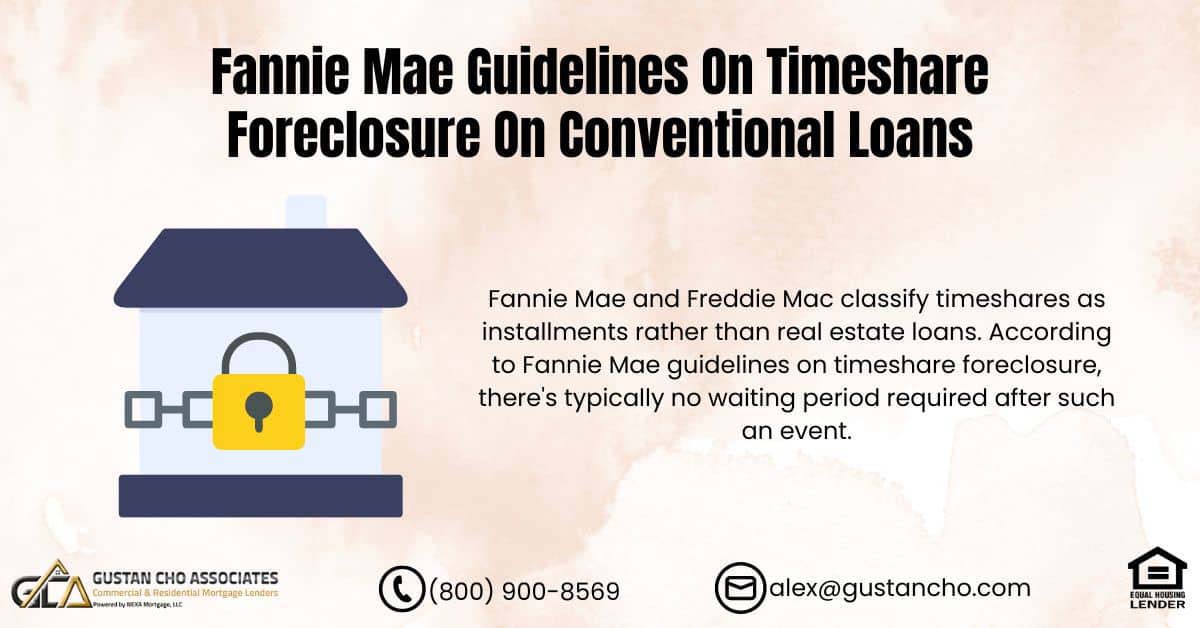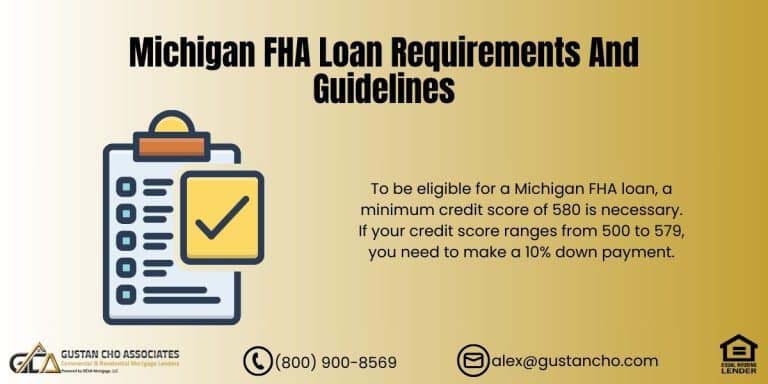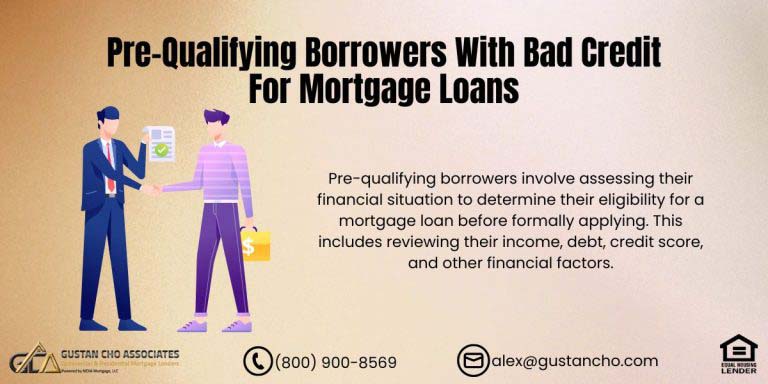If you’ve gone through a timeshare foreclosure, you may wonder: Can I still qualify for a mortgage? The good news is that Fannie Mae guidelines on timeshare foreclosure differ from standard home foreclosures. In many cases, you may not have to wait to get a conventional loan.But here’s the catch—not all lenders treat timeshare foreclosures the same way. Some apply strict rules that make it harder for borrowers to qualify. At Gustan Cho Associates, we follow Fannie Mae‘s official guidelines, which means we do not impose additional waiting periods for borrowers with timeshare foreclosures. If you’ve been denied a mortgage because of a timeshare foreclosure, keep reading—you may be able to buy a home sooner than you think!
How Does Fannie Mae Classify Timeshare Foreclosures?
- There is no standard waiting period for foreclosure.
- Your ability to get a mortgage will not be affected like after a home foreclosure.
- You don’t have to wait years to qualify for a conventional loan.
Had a Timeshare Foreclosure? Find Out How It Affects Your Mortgage Approval
Apply Online And Get recommendations From Loan ExpertsDo You Have to Wait After a Timeshare Foreclosure?
Fannie Mae guidelines on timeshare foreclosure do not require a waiting period, which is a major advantage compared to other derogatory credit events. For comparison, here are the standard waiting periods for major credit events under Fannie Mae:- Home Foreclosure: 7-year waiting period
- Deed-in-Lieu of Foreclosure: 4-year waiting period
- Short Sale: 4-year waiting period
- Chapter 7 Bankruptcy: 4-year waiting period
- Chapter 13 Bankruptcy (Dismissed): 4-year waiting period
- Chapter 13 Bankruptcy (Discharged): 2-year waiting period
- Timeshare Foreclosure: No waiting period (as long as it is classified correctly)
How Different Lenders Treat Timeshare Foreclosures
All lenders need to make sure their borrowers meet the minimum agency mortgage guidelines of Fannie Mae and/or Freddie Mac conventional loans. For example, the minimum credit score requirement to qualify for an owner-occupant primary conventional loan is 620 FICO. Even though Fannie Mae guidelines on timeshare foreclosure do not require a waiting period, some lenders impose stricter rules, including: ❌ Treating timeshare foreclosures as a real estate foreclosure ❌ Requiring a 4-7 year waiting period ❌ Automatically declining applications with a timeshare foreclosure Lenders sometimes add these extra rules on top of the normal ones. These extra rules are called lender overlays. Not every lender has them, but many do. If you want to avoid these extra rules, choose a lender that follows Fannie Mae guidelines on timeshare foreclosure. One good option is Gustan Cho Associates. They stick to the standard rules, making the process easier for you.How to Get a Mortgage After a Timeshare Foreclosure
 If you’ve lost a timeshare because you couldn’t pay for it, you can still get a mortgage. Here are some steps to help you, based on Fannie Mae guidelines on timeshare foreclosure:
If you’ve lost a timeshare because you couldn’t pay for it, you can still get a mortgage. Here are some steps to help you, based on Fannie Mae guidelines on timeshare foreclosure:
1. Check Your Credit Report
- Ensure the timeshare foreclosure is reported as an installment loan charge-off, not a mortgage foreclosure.
- If it’s misclassified, dispute it with the credit bureaus.
2. Work with a Lender That Follows Fannie Mae Guidelines
- Not all lenders follow Fannie Mae guidelines on timeshare foreclosure—some have overlays.
- Gustan Cho Associates does not impose overlays, so we can approve loans even with a past timeshare foreclosure.
3. Improve Your Credit Score
- Even though there’s no waiting period, your credit score still matters.
- Pay down credit cards, make on-time payments, and avoid new negative marks.
4. Have a Strong Income & DTI Ratio
- It’s important to know this, especially if you’re looking into Fannie Mae guidelines on timeshare foreclosure. They might think you can’t handle paying for a new mortgage if you owe too much money already.
- A lower DTI makes you a stronger borrower, increasing approval chances.
5. Provide a Letter of Explanation (LOE), If Needed
- If your lender requests an explanation, be prepared to provide details about the foreclosure.
- In your letter, follow the Fannie Mae guidelines on timeshare foreclosure. Keep it simple and stick to the facts. Start by explaining what happened that led to the foreclosure. Then, talk about how your situation has improved since then, like finding a new job or getting back on track with your money. Make sure to keep your letter clear and easy to understand.
Can Extenuating Circumstances Reduce Waiting Periods?
- Serious illness or injury
- Death of a primary wage earner
- Divorce or separation
- Job loss or unexpected loss of income
- Natural disasters that impact your home or finances
Why Choose Gustan Cho Associates?
Not all lenders interpret Fannie Mae guidelines on timeshare foreclosure the same way. Many impose overlays that make it harder for borrowers to qualify. Here’s why Gustan Cho Associates is different:- No lender overlays – We approve loans based on Fannie Mae guidelines on timeshare foreclosure, not extra rules.
- No waiting period for timeshare foreclosures – Get approved immediately.
- Flexible mortgage solutions – available FHA, VA, USDA, and conventional loans.
- Expert loan officers – We specialize in helping borrowers with past credit issues.
- Fast approvals & closings – Get to the closing table faster!
Get Pre-Approved Today
If you’ve been denied a mortgage due to a timeshare foreclosure, don’t wait! You may still qualify right now under Fannie Mae guidelines on timeshare foreclosure. 📞 Call us at800-900-8569 📲 Text us for faster service 📧 Email us at gcho@gustancho.com At Gustan Cho Associates, we are available 7 days a week, including evenings and weekends. Let’s get you into your dream home!Is a Timeshare Foreclosure Treated Like a Mortgage Foreclosure?
Apply Online And Find Out the Fannie Mae RulesFinal Thoughts
A timeshare foreclosure does not have to stop you from getting a mortgage. Fannie Mae guidelines on timeshare foreclosure do not require a waiting period, but many lenders still impose restrictions. If you’re serious about buying a home after a timeshare foreclosure, work with a lender who follows Fannie Mae guidelines—like Gustan Cho Associates.Frequently Asked Questions About Fannie Mae Guidelines on Timeshare Foreclosure:
Do I have to Wait to Get a Mortgage After a Timeshare Foreclosure?
No! Fannie Mae guidelines on timeshare foreclosure do not require a waiting period. Since timeshare loans are treated as installment loans (like car loans), they don’t count as real estate foreclosures. This means you can apply for a conventional loan immediately if you meet other lender requirements.
Why do Some Lenders Say I Need to Wait After a Timeshare Foreclosure?
Some lenders add their own rules, called lender overlays, which are stricter than Fannie Mae guidelines on timeshare foreclosure. They may mistakenly treat a timeshare foreclosure like a home foreclosure, which would require a waiting period. Working with a lender like Gustan Cho Associates, which follows official Fannie Mae guidelines, ensures you don’t face unnecessary delays.
How does Fannie Mae Classify a Timeshare Foreclosure?
Under Fannie Mae guidelines on timeshare foreclosure, timeshares are classified as installment loans, not real estate. This is different from traditional home foreclosure and means there is no mandatory waiting period for getting a new mortgage.
Will a Timeshare Foreclosure Affect My Credit Score?
Yes, a timeshare foreclosure may lower your credit score like any other missed loan payments or charge-offs. However, the impact is less severe than a home foreclosure because timeshares are classified as installment loans. Making on-time payments and maintaining low credit card balances significantly enhances your credit score, which can lead to quicker mortgage qualification.
How do I Make Sure My Timeshare Foreclosure is Classified Correctly?
Check your credit report to confirm that your timeshare foreclosure is listed as an “installment loan charge-off” rather than a mortgage foreclosure. If it’s misclassified, you can dispute it with the credit bureaus to correct the error. This is important to ensure you don’t face unnecessary waiting periods when applying for a mortgage.
Can I Get a Mortgage if I have Other Negative Credit Events and a Timeshare Foreclosure?
Yes, but if you have other credit events like bankruptcy, short sale, or home foreclosure, additional waiting periods may exist under Fannie Mae guidelines on timeshare foreclosure. However, if you can prove extenuating circumstances (like job loss or medical emergencies), you might be able to shorten the waiting period.
What Credit Score is Required to Qualify for a Mortgage Following a Timeshare Foreclosure?
To qualify for a conventional loan, you need a minimum credit score 620 per Fannie Mae, though there are lenders that require a higher score. Gustan Cho Associates follows Fannie Mae’s guidelines without higher requirements.
How Can I Qualify for a Mortgage After a Timeshare Foreclosure?
Here’s how to improve your chances of getting approved under Fannie Mae guidelines on timeshare foreclosure:
Check your credit report and fix any errors
Work with a lender that follows Fannie Mae guidelines (like Gustan Cho Associates)
Increase your credit score by making payments on time.
Keep your debt-to-income (DTI) ratio low
Provide a letter of explanation (LOE) if needed
Can I Qualify for an FHA or VA Loan After a Timeshare Foreclosure?
Yes! FHA, VA, and USDA loans also do not impose a waiting period after a timeshare foreclosure. If you don’t qualify for a conventional loan, you may still be eligible for a government-backed loan with lower credit requirements.
How Can I Find a Lender that Follows Fannie Mae Guidelines on Timeshare Foreclosure?
Many lenders add overlays, making it harder to qualify. Gustan Cho Associates does not impose overlays, which means we follow Fannie Mae guidelines on timeshare foreclosure exactly as written—no waiting periods, no extra rules!










